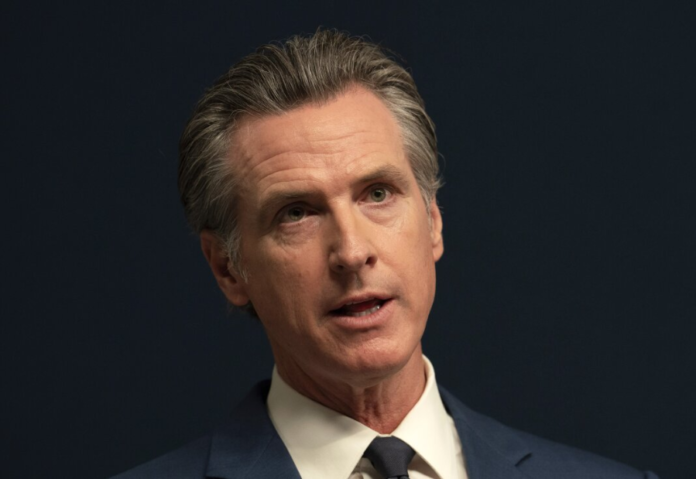A contentious artificial intelligence safety measure was rejected by California Governor Gavin Newsom on Sunday, following protests from the tech sector that the bill will force out AI businesses and stifle innovation.
Newsom claimed that the legislation “does not take into account whether an AI system is deployed in high-risk environments, involves critical decision-making, or the use of sensitive data” and would be applicable “stringent standards to even the most basic functions — so long as a large system deploys it.”
Newsom said he had asked leading experts on generative AI to help California “develop workable guardrails” that focus “on developing an empirical, science-based trajectory analysis.” Additionally, he mandated that state authorities broaden their evaluation of the dangers associated with major incidents linked to the application of AI.
Both excitement and anxiety have been sparked by generative AI, which can produce text, images, and videos in answer to open-ended questions. It has the potential to overtake humans and have disastrous consequences, as well as to render some jobs obsolete and sway elections.
Democratic state senator Scott Wiener, the bill’s sponsor, claimed that legislation was required to safeguard the public before AI advancements became unmanageable or uncontrollable. California’s AI market is expanding quickly, and some business executives expressed concerns about these companies’ ability to stay in the state should the bill become law.
Wiener said Sunday the veto makes California less safe and means “companies aiming to create an extremely powerful technology face no binding restrictions.” He added “voluntary commitments from industry are not enforceable and rarely work out well for the public.”
“We cannot afford to wait for a major catastrophe to occur before taking action to protect the public,” Newsom said, but added he did not agree, “we must settle for a solution that is not informed by an empirical trajectory analysis of AI systems and capabilities.”
During the next session of the legislature, Newsom announced he will collaborate with them on AI legislation. It coincides with the Biden administration’s advancement of regulatory AI supervision ideas and the stagnation of safeguard-related legislation in the US Congress.
Newsom said “a California-only approach may well be warranted – especially absent federal action by Congress.”
Chamber of Progress, a tech industry coalition, praised Newsom’s veto, saying “the California tech economy has always thrived on competition and openness.”
The proposal, among other things, would have required safety testing for a large number of the most sophisticated AI models, those that demand a certain level of processing power or that cost more than $100 million (approximately Rs. 838 crore) to construct. The creators of AI programs used by the state would also have had to provide instructions on how to disable the AI models—basically, a kill button.
The bill would have established a state entity to oversee the development of so-called “Frontier Models” that exceed the capabilities present in the most advanced existing models.
Numerous groups opposed the law with great force. The plan has drawn criticism from Alphabet’s Google, Microsoft-backed OpenAI, and Meta Platforms—all of which are working on generative AI models.
It was also opposed by certain Democrats serving in the US Congress, notably Representative Nancy Pelosi. Among the supporters was Elon Musk, the CEO of Tesla and founder of xAI, an AI company. The bill’s advantages probably exceed its disadvantages, according to Amazon-backed Anthropic, although several parts of it still seem unclear or worrisome.
Legislation mandating the state to evaluate the risks presented by generative artificial intelligence to California’s vital infrastructure was separately signed by Newsom.
According to Newsom, the state is evaluating the risks associated with the energy infrastructure and has already gathered suppliers from the electricity industry. In the upcoming year, it will do the same risk assessment with providers from the water sector and then the communications sector.
Do Follow: CIO News LinkedIn Account | CIO News Facebook | CIO News Youtube | CIO News Twitter
About us:
CIO News is the premier platform dedicated to delivering the latest news, updates, and insights from the CIO industry. As a trusted source in the technology and IT sector, we provide a comprehensive resource for executives and professionals seeking to stay informed and ahead of the curve. With a focus on cutting-edge developments and trends, CIO News serves as your go-to destination for staying abreast of the rapidly evolving landscape of technology and IT. Founded in June 2020, CIO News has rapidly evolved with ambitious growth plans to expand globally, targeting markets in the Middle East & Africa, ASEAN, USA, and the UK.
CIO News is a proprietary of Mercadeo Multiventures Pvt Ltd.






